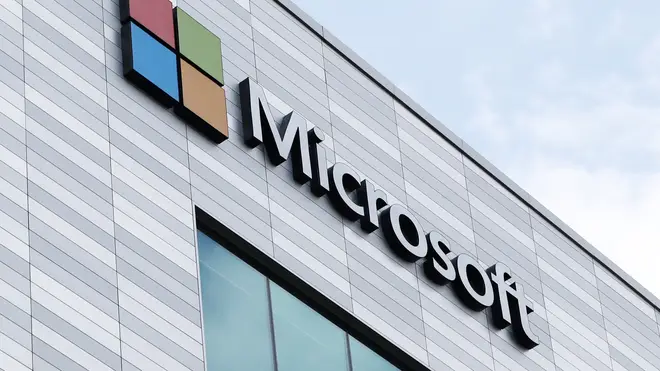
Paul Brand 7am - 10am
26 January 2021, 23:24

The software maker posted revenue of 43.1 billion dollars (£31.37 billion) in the October-December period, up 17% from last year.
Microsoft has beaten Wall Street expectations for the last three months of 2020 despite the pandemic raging through the US.
The figures were powered by ongoing demand for its workplace software and cloud computing services as people worked from home.
The company reported fiscal second-quarter profit of 15.5 billion dollars (£11.28 billion), up 33% from the same period last year.
In a statement, chief executive Satya Nadella called it “the dawn of a second wave of digital transformation sweeping every company and every industry”.
Net income of 2.03 dollars per share beat Wall Street expectations.
The software maker posted revenue of 43.1 billion dollars (£31.37 billion) in the October-December period, up 17% from last year and also beating forecasts.
Analysts surveyed by FactSet were expecting Microsoft to earn 1.64 dollars per share on revenue of 40.2 billion dollars (£29.26 billion) for the fiscal quarter ending in December.
The coronavirus pandemic sparked a massive shift to the cloud and to Microsoft that is unlikely to be reversed once the crisis is over, said Daniel Elman, an analyst at Nucleus Research.
Consumer-facing businesses were forced to adapt to new ways of engaging with their customers digitally, and many of those businesses looked to Microsoft for the apps and services to ease that shift.
“So many people are already familiar with the Microsoft user interface that it’s a comfortable option,” Mr Elman said.
Revenue from Microsoft’s productivity segment, which includes its Office suite of workplace products such as email, grew by 13% in the quarter ending in December, to 13.4 billion dollars (£9.75 billion).
Its cloud computing business segment grew 23% to 14.6 billion dollars (£10.6 billion).
The most visible sign of that growth has been the rise of Microsoft’s workplace communications tool Teams, which has vied with Zoom and Slack as a must-have service for remote workers in the pandemic.
Software pioneer Salesforce, already a rival for Microsoft in selling customer relations software, announced in December it was buying Slack in a 27.7 billion dollar (£20.1 billion) deal that could give Microsoft tougher competition when it closes later this year.
Microsoft’s personal computing business segment also grew by 14% to 15.1 billion dollars (£11 billion).
Some of that stemmed from holiday gadget sales and Windows licences for new computers sought by homebound workers, but the biggest boost to the segment was from the release of Microsoft’s new Xbox Series X console.
Xbox revenue grew 40% over the same time last year.
Mr Elman said Microsoft was helped by having fewer supply chain problems than Sony’s new PlayStation 5 after both companies introduced their first new systems since 2013.
“I don’t think they’re going to unseat Sony and become the number one console again, but it will do a good job of closing the gap,” he said.